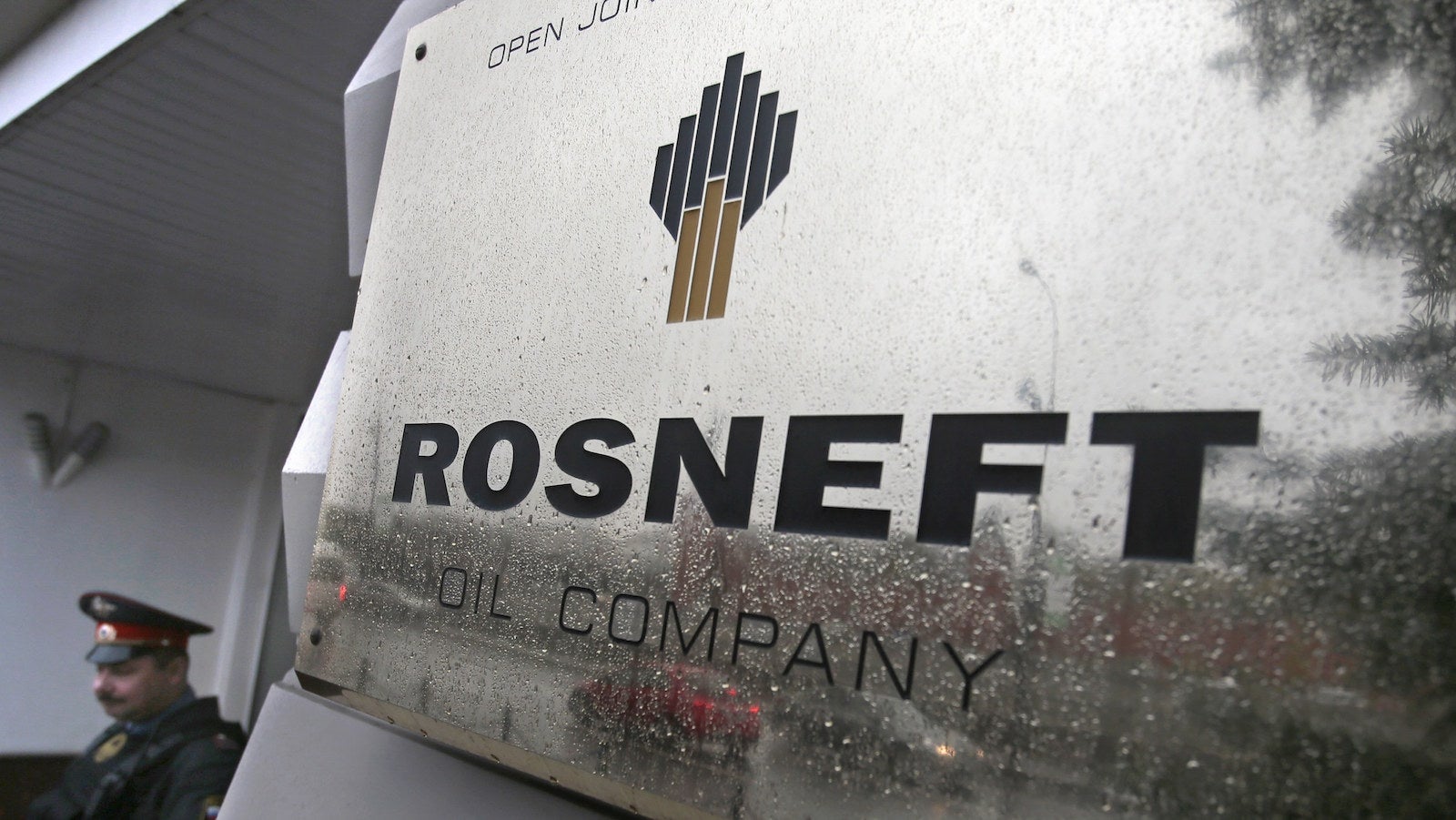Why Russia’s Rosneft—the world’s fifth largest oil company—may be coming to India
Essar Oil’s shares have shot up some 38% on the Bombay Stock Exchange since June 10, amid speculation that Russia’s Rosneft—the world’s fifth largest oil and gas company—is likely to buy a 49% stake in India’s second largest private refiner for $1.6 billion (Rs10,278 crore).


Essar Oil’s shares have shot up some 38% on the Bombay Stock Exchange since June 10, amid speculation that Russia’s Rosneft—the world’s fifth largest oil and gas company—is likely to buy a 49% stake in India’s second largest private refiner for $1.6 billion (Rs10,278 crore).
Prashant Ruia, one of the promoters of the $39 billion (Rs2.5 lakh crore) Essar group, is reportedly in Moscow meeting top officials of Rosneft.
If the deal goes through, Rosneft will have access to as much as 1.7 billion barrels of oil, equivalent to Essar Oil’s reserves spread across India, Vietnam, Indonesia, Madagascar and Nigeria. But more importantly for the Russian oil and gas major, which produces 4.7 million boepd (barrel of oil equivalent per day), the deal will allow access to one of the world’s fastest growing economies with a huge appetite for energy.
“They are probably late already,” said Nitin Tiwari, vice president, institutional research at Religare Capital, a domestic brokerage firm. “Global companies such as BP, Total and Shell have already entered India and demand in India and Asia Pacific region has been very, very high.”
Emails sent to both Rosneft and Essar Oil remain unanswered.
The big opportunity
India imports as much as 80% of its crude oil requirement of 190 million tonnes per annum or 3.8 million barrels a day—and the International Energy Agency estimates that the country’s oil demand will rise to 4.7 million barrels per day by 2020, at a compounded annual growth rate of 3.4%.
While global firms like BP—which in 2011 signed a $7.2 billion deal with India’s largest private refiner, Reliance Industries—have tapped into the oil and gas sector before, experts believe the big opportunity for Rosneft will be the refinery business. A refinery typically filters crude oil into petroleum products such as diesel and gasoline, among others.
“The refineries in India tend to operate at around 100% capacity utilisation. So, there is certainly a scope and need for more refineries,” said Deep Mukherjee, senior director for corporates at India Ratings and Research, a credit rating agency and a unit of Fitch.
But the recent drop in oil prices means that it isn’t as lucrative as before to set up a fresh refinery. ”Add to that the regulatory complexity of setting up large plants; the best options for foreign firms is to buy into existing refineries,” Mukherjee told Quartz.
Essar owns and operates Vadinar refinery, India’s second biggest private refinery, with a capacity of 20 million metric tonnes per annum, or 405,000 barrels per day. And Rosneft—which already supplies oil and oil products to Essar for its refinery—may well be interested in the Vadinar plant as it looks to expand its footprint in India.
Alongside, the Narendra Modi government’s decision to deregulate diesel prices and open up the petroleum industry in October last year is part of the reason why Rosneft could be looking at India.
Essar Oil owns about 1,400 retail outlets—an area Rosneft may be interested in since it already runs more than 2,500 outlets in Russia and elsewhere in eastern Europe. And more expansion is likely as private players look to bolster their networks now that diesel prices are free of government control.
India currently has 51,870 petrol pumps, mostly led by government-owned petroleum companies such as Indian Oil Corporation, Bharat Petroleum and Hindustan Petroleum Corporation Limited.
Upstream blocked
The other possible play for Rosneft is the upstream sector, essentially exploration and production of oil, where a maze of unweildy regulations have previously stalled other global energy giants.
“Many companies got their fingers burnt repeatedly,” said Stephane G. Foucaud, managing director of institutional research at FirstEnergy Capital Corp, referring to global oil majors who have suffered after entering India’s upstream sector.
In 2011, Brazil’s Petrobras exited its partnership with state-run Oil and Natural Gas Corporation for oil exploration after technical studies. In 2013, BHP Billiton, then the world’s largest miner, surrendered 10 oil and gas exploration fields after India’s defence establishments did not give it the required clearance.
Other regulatory tussles, like the one between the Indian government and Reliance Industries over the Krishna Godavari D-6 site, are hardly a carrot for foreign firms keen to set up exploration operations in India. In 2014, BP had to write off $770 million (Rs4,938 crore) of its investment in the KG D-6 block because of an uncertainty over gas pricing formula and regulatory requirements.